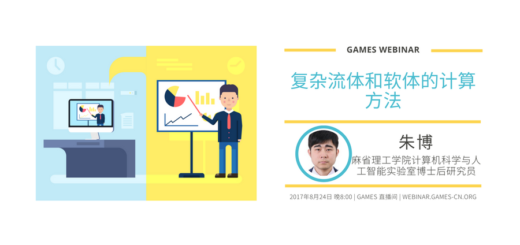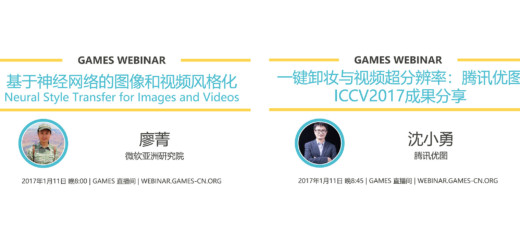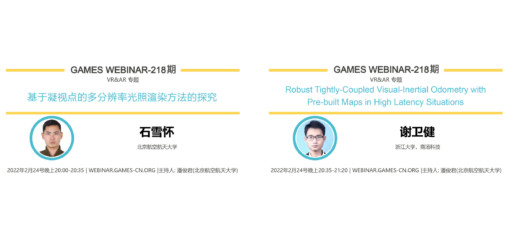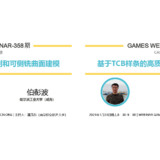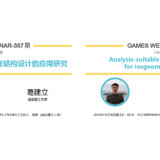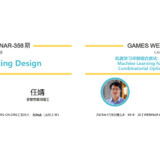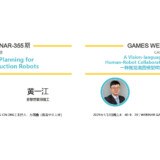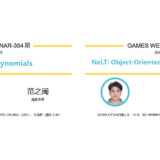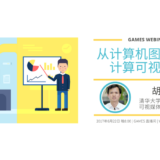GAMES Webinar 2020 – 152期(海外专题) | Richard Zhang (Adobe Research), Taesung Park (UC Berkeley)


【GAMES Webinar 2020-152期】(海外专题)
报告嘉宾1:Richard Zhang (Adobe Research)
报告时间:2020年8月20日上午10:00-10:45(北京时间)
报告题目: Analyzing Artifacts in Discriminative and Generative Models
报告摘要:
The tools that we use to analyze, generate, and edit images have become increasingly powerful. Yet, these systems still have behavioral artifacts that can be studied and exploited. We begin by noting that standard discriminative convolutional networks (CNNs) are not shift-invariant, as small input shifts can cause drastic changes in the output. Commonly used downsampling methods, such as max-pooling, strided-convolution, and average-pooling, ignore the sampling theorem. We show that the well-known (but overlooked) signal processing fix, anti-aliasing before downsampling, is compatible with existing architectural components and can increase accuracy and robustness.
Next, we investigate generative networks, and ask whether it is possible to create a “universal” detector for telling apart real images from these generated by a CNN, regardless of architecture or dataset used. We demonstrate that with careful processing, a standard image classifier trained on only one specific CNN generator (ProGAN) is able to generalize surprisingly well to unseen architectures, datasets, and training methods. This suggests that today’s CNN generators share some common systematic flaws. Finally, while CNN-generated images are of increasing importance, most malicious photo manipulations are created using standard image editing tools, such as Adobe Photoshop. We present a method for detecting one popular Photoshop manipulation — image warping of human faces. We show that our model outperforms humans at the task of recognizing manipulated images, can predict the specific location of edits, and in some cases can be used to “undo” a manipulation to reconstruct the original, unedited image.
讲者简介:
报告嘉宾2: Taesung Park (UC Berkeley)
报告时间:2020年8月20日上午10:45-11:30(北京时间)
报告题目:Disentangled Image Manipulation without Supervision
报告摘要:
In this talk, I will talk about how to perform image manipulation without much supervision. In the first half, the talk will be based on “Contrastive Learning for Unpaired Image Translation”, which leverages new patch-based contrastive loss to achieve image-to-image translation. The proposed method results in a more flexible, and lighter model than popular existing image translation methods like CycleGAN and MUNIT. In the second half, I will talk about “Swapping Autoencoder for Deep Image Manipulation”, which aims to disentangle images into structure and style in an unsupervised setting, using a patch co-occurrence discriminator. The new method is ideal for image editing, because it can quickly embed an input image with high fidelity, and allows independent editing of structure and style using an interactive UI.
讲者简介:
Taesung Park is a Ph.D. student in Computer Science at UC Berkeley, advised by Prof. Alexei Efros. His interests are computer vision and learning-based computational photography. Taesung interned at Adobe in 2019-20, working with Richard Zhang, and at NVIDIA in 2018, Ming-Yu Liu. Taesung received B.S. in Mathematics and M.S. in Computer Science, both at Stanford University. He is funded by Samsung Scholarship for my Ph.D. study, and a recipient of Adobe Research Fellowship 2020.
讲者个人主页: https://taesung.me
主持人简介:
朱俊彦博士目前是Adobe研究院的科学家,他将在今年九月成为卡耐基梅隆大学(CMU) 计算机学院的助理教授。他在清华大学和加州大学伯克利分校分别获得本科和博士学位,他曾经在MIT CSAIL担任博士后。他主要的研究方向是计算机视觉,图形学,计算摄影学,以及机器学习。他曾获得Facebook博士奖学金,ACM SIGGRAPH杰出博士论文奖,UC Berkeley EECS David J. Sakrison纪念奖(授予杰出博士研究工作)。他的工作曾获NVIDIA先驱研究奖,SIGGRAPH 2019 Real-time Live!最佳展示奖, 和2019年百大发明奖(由Popular Science杂志评选)。
GAMES主页的“使用教程”中有 “如何观看GAMES Webinar直播?”及“如何加入GAMES微信群?”的信息;
GAMES主页的“资源分享”有往届的直播讲座的视频及PPT等。
观看直播的链接:http://webinar.games-cn.org
